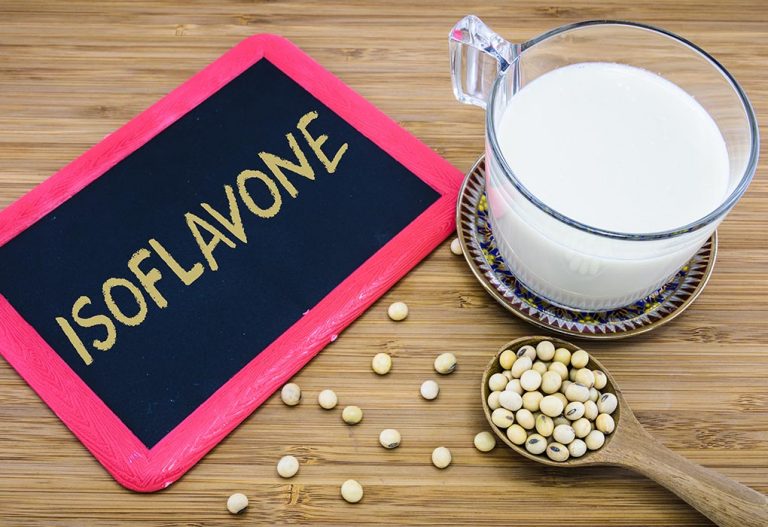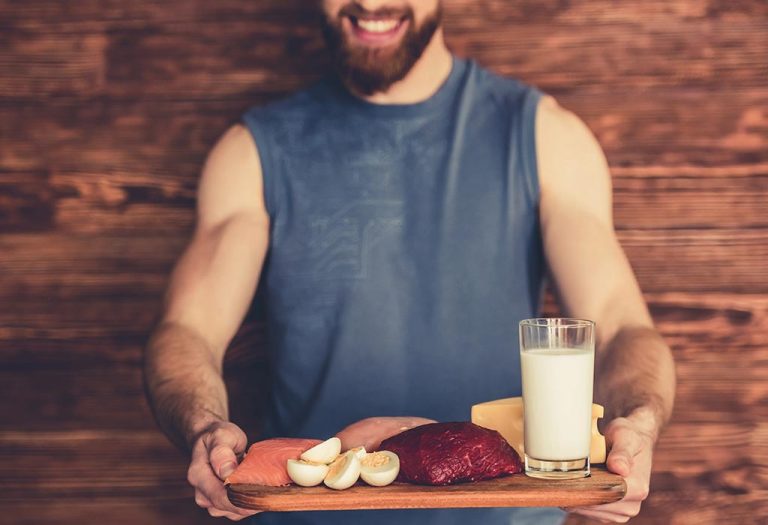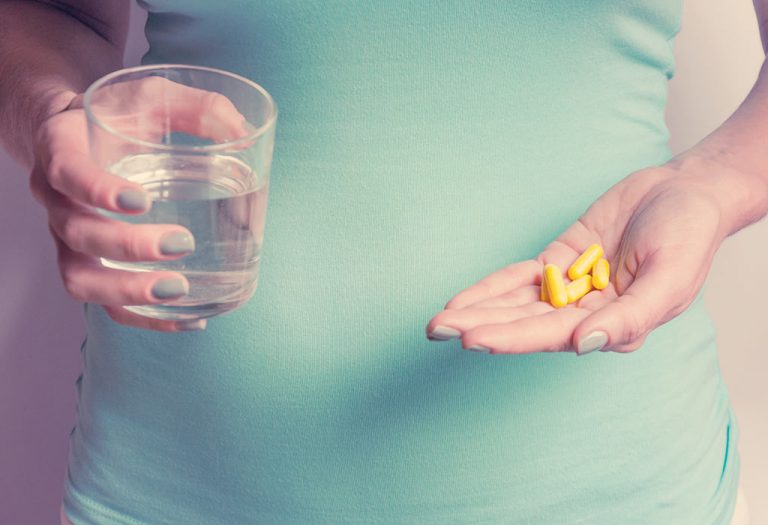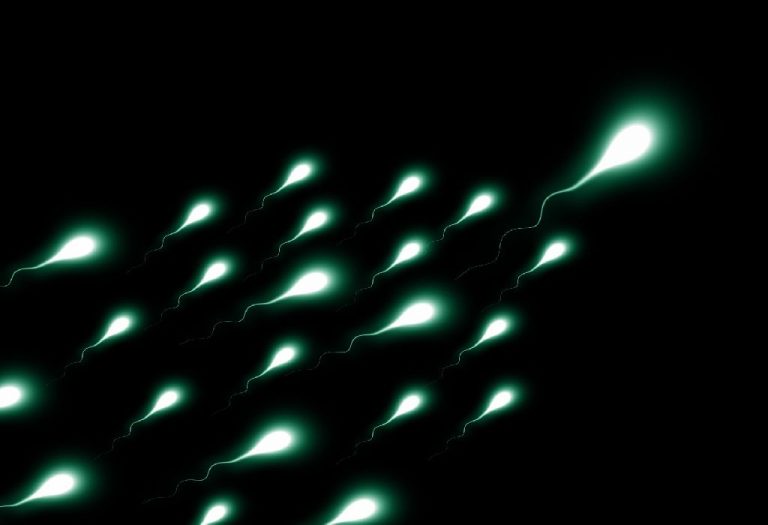Taking Soy Isoflavones for Fertility – How to Take and Side Effects

- What Are Soy Isoflavones?
- How Do They Work for Fertility?
- Who Should Take Soy Isoflavones for Fertility?
- How to Consume Soy Isoflavones for Fertility
- Soy Isoflavones Dosage for Fertility
- Possible Risks and Side Effects of Taking Soy Isoflavones
- Can You Take Soy Isoflavones Supplements for Getting Pregnant?
- Things to Remember Before Consuming Soy Isoflavones for Conception
- FAQs
If you trying to get pregnant for a long time now, you may consider taking soy isoflavones to speed up the process. It is an unconventional method, but, in today’s age, where many women deal with fertility problems, it may just be the answer you are looking for. Although there is no concrete research result which proves this, it’s worth looking into how soy isoflavones can be used to boost fertility. But before we discuss the efficacy, let’s quickly learn about where we get soy isoflavones for fertility, how they work, and other essential aspects of this micronutrient.
What Are Soy Isoflavones?
Isoflavones are a type of phytoestrogen or micronutrient derived from plants. They help stimulate the estrogen in your body. Foods like soybean or other soy products, which have a high level of protein, contain isoflavones in a higher proportion (1). It is said that consuming these foods high in isoflavones can increase the chances of fertility in a woman (2). Soy isoflavones derived from soy products reduce the risks of osteoporosis, diabetes, hormone-dependent cancers like breast and prostate cancer, and cardiovascular diseases and alleviate symptoms of menopause (3) (4).
How Do They Work for Fertility?
Many women experience fertility or non-ovulatory issues. Soy isoflavones can help induce ovulation in such women. Women who also have the problem of irregular periods can consume these isoflavones to get much-needed relief. On consumption, they help increase estrogen production in a woman’s body. This, in turn, stimulates ovulation and can make you ready for pregnancy. Therefore, taking soy isoflavones for infertility is a good natural alternative (5).
Who Should Take Soy Isoflavones for Fertility?
Before you try them out, always consult your doctor. If your menstrual cycles and ovulatory cycles are regular, you must not take soy isoflavones as they may cause hormonal imbalances in your body. On the other hand, if you have issues with ovulation or irregular periods, then you can try soy isoflavones. However, take these only after consulting with your doctor.
How to Consume Soy Isoflavones for Fertility
There are two ways to consume soy isoflavones if you are looking to take them for fertility. Here is how you can consume soy isoflavones for fertility:
- Soy isoflavone can be consumed in the form of supplements. They are available at pharmacies as tablets or capsules.
- You can also consume soy or edamame beans and other soy products such as soy milk, soy tofu or yoghurt made of soy.
Soy Isoflavones Dosage for Fertility
The dosage of soy isoflavone supplements for getting pregnant is 80 mg every day. Since you will get them in the form of 40mg pills at pharmacies or health stores, you can take two tablets every day. However, consult with your doctor first before taking soy isoflavone supplements.
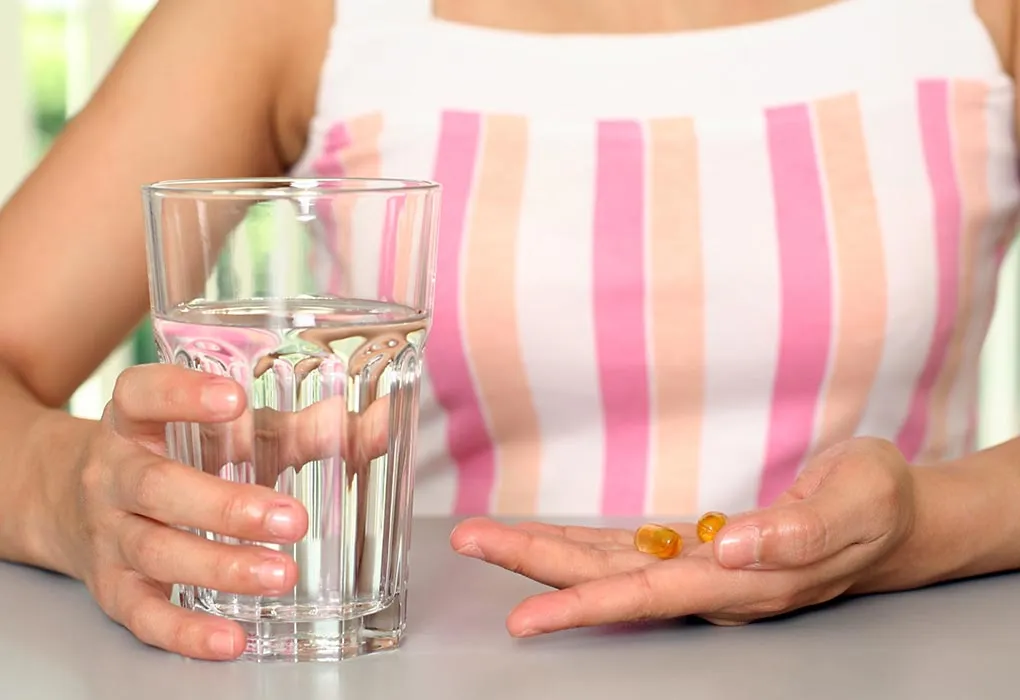
Possible Risks and Side Effects of Taking Soy Isoflavones
Taking soy isoflavones for fertility is not a proven practice, and there are some risks and side effects associated with their use, which are as follows:
- Taking soy isoflavone supplements for more than 5 days in a row every month can affect your ovulatory cycle.
- Taking too much soy isoflavone can throw your menstrual cycle out of balance.
- Taking soy isoflavone supplements with other antibiotics can again have negative effects on your health.
- Excess consumption of soy isoflavones can also cause thyroid problems in women.
- Digestive disorders and headaches are other side effects of consuming soy isoflavones.
Can You Take Soy Isoflavones Supplements for Getting Pregnant?
Yes, it can be taken, but the research behind this is quite vague. It is safe to take supplements for short periods to see if this will help you get pregnant, but taking them for longer periods might be dangerous, as this realm is yet unknown to scientists. For best results, take soy isoflavone supplements at the correct time during your menstrual cycle. Usually, it is advised to take them 3-5 days after the first day of your menstrual cycle. Take your supplements after meals and make sure you stick to the same timing every day.
Things to Remember Before Consuming Soy Isoflavones for Conception
Some important points to remember before consuming soy isoflavones for pregnancy are:
- During your five-day course, take the correct dosage of supplements. Increased soy isoflavone supplement dosage can lead to health problems.
- If you are suffering from PCOS, it is better to avoid taking soy isoflavone supplements.
- If you are consuming any antibiotics or medicines for thyroid, consult your doctor first before taking the supplements as they can cause problems in your body.
- If your ovulation is irregular, then you can take these supplements. But if your infertility is caused by some other issue like uterine fibroids, uterine polyps, fibrocystic breasts or thyroid issues, then you should never take soy isoflavones as they might make these disorders worse.
- If you are above 35 years, definitely consult your doctor before taking soy isoflavone supplements.
- Take the supplements at the right time every day during the five-day course to minimise side effects like digestive issues or fatigue.
FAQs
1. Who should avoid taking soy isoflavones?
Women having uterine fibroids, PCOS, and ovary, breasts, or uterus sensitivity to estrogen should avoid taking soy isoflavones to get pregnant, as they can worsen the issues.
2. What are the benefits of soy isoflavones?
Phytoestrogen isoflavones derived from soybeans mimic estrogen activity, modulating estrogen metabolism. According to the National Cancer Institute, soy isoflavones are also known to regulate hormone balance, reduce tumour cell proliferation, and reduce the risks of heart disease, breast cancer, and osteoporosis (6) (3).
3. Does eating soy increase the risks of breast cancer?
Studies have shown that a healthy and balanced lifelong diet that contains soy reduces the chances of breast cancer in women because of the protein and isoflavones present in it. However, the notion of soy increasing breast cancer is incorrect. According to the Mayo Clinic, food sources of soy contain plant estrogens, including isoflavone, in good amounts but not in high enough levels to increase the risk of breast cancer. However, soy or isoflavone supplements contain high levels of isoflavones, which may increase the risk of breast cancer in women who have a family history of thyroid problems or breast cancer (7).
The relationship between soy isoflavones and fertility signifies hope. It is a good option if you are struggling to conceive. Fertility over 40 starts declining due to a reduction in the egg supply. If you follow your doctor’s instructions carefully, then soy isoflavones can help in increasing your chances of pregnancy. Good luck!
References/Resources:
1. Soy Isoflavones; Oregon State University; https://lpi.oregonstate.edu/mic/dietary-factors/phytochemicals/soy-isoflavones
2. Rizzo. G, et al.; The role of soy and soy isoflavones on women’s fertility and related outcomes: an update; J Nutr Sci.; PubMed Central; https://www.ncbi.nlm.nih.gov/pmc/articles/PMC8922143/; March 2022
3. Pabich. M, Materska. M; Biological Effect of Soy Isoflavones in the Prevention of Civilization Diseases; Nutrients; PubMed Central; https://www.ncbi.nlm.nih.gov/pmc/articles/PMC6683102/; July 2019
4. Messina. M; Soy foods, isoflavones, and the health of postmenopausal women; The American Journal of Clinical Nutrition; https://www.sciencedirect.com/science/article/pii/S0002916523048918; July 2014
5. Jacobsen. B. K, et al.; Soy isoflavone intake and the likelihood of ever becoming a mother: the Adventist Health Study-2; Int J Womens Health.; PubMed Central; https://www.ncbi.nlm.nih.gov/pmc/articles/PMC3982974/; April 2014
6. soy isoflavones; National Cancer Institute; https://www.cancer.gov/publications/dictionaries/cancer-drug/def/soy-isoflavones
7. Will eating soy increase my risk of breast cancer?; Mayo Clinic; https://www.mayoclinic.org/healthy-lifestyle/nutrition-and-healthy-eating/expert-answers/soy-breast-cancer-risk/faq-20120377#
Also Read:
Feng Shui for Fertility
Apple Cider Vinegar to Boost Fertility
How Meditation Helps You to Get Pregnant
Best Fertility Yoga Asanas to Get Pregnant Fast
Consuming Coenzyme Q10 for Fertility
Was This Article Helpful?
Parenting is a huge responsibility, for you as a caregiver, but also for us as a parenting content platform. We understand that and take our responsibility of creating credible content seriously. FirstCry Parenting articles are written and published only after extensive research using factually sound references to deliver quality content that is accurate, validated by experts, and completely reliable. To understand how we go about creating content that is credible, read our editorial policy here.







